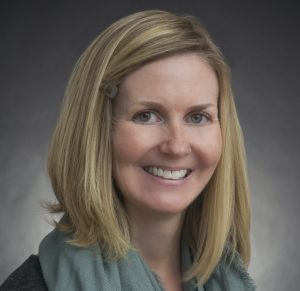by Aimee Metcalf
Central Oregon Community College
Bend, OR
 A few weeks ago, I was planning for commencement, wrapping up our “COCC Magazine” and looking ahead to next year’s marketing strategies. Almost overnight, with the arrival of COVID-19, my professional – and personal – priorities changed. And while I am almost famously known for my work-life balance, I found myself struggling.
A few weeks ago, I was planning for commencement, wrapping up our “COCC Magazine” and looking ahead to next year’s marketing strategies. Almost overnight, with the arrival of COVID-19, my professional – and personal – priorities changed. And while I am almost famously known for my work-life balance, I found myself struggling.
Because of my job, I feel it’s my responsibility to stay connected – Facebook, Instagram, Twitter, and other social media platforms and news outlets. But soon, all the news and information I was consuming began to feel like an anchor. I also knew that my job was going to become very intense, very quickly – and that being weighed down by doubt or insecurity wasn’t going to help me or anyone around me.
Here are some things that helped me feel tethered in the face of uncertainty. I hope some of these suggestions help you, too.
Be gentle with yourself. Sometimes our own expectations get the better of us and leave us feeling like we’re always a step behind. Give yourself some grace, some slack, and treat yourself kindly in the face of difficulty.
Be gentle with your students, co-workers and family. When it feels like the world is crashing down around us, we can forget that it is crashing down for others as well. People are frightened. They may be scared for their own health or for the health of their family members who are elderly or immune compromised. They may have lost their financial safety net and may be in jeopardy of losing their jobs, their homes and their hope in the future. They may be juggling all these responsibilities and fears at the same time. Many of the people we interact with will not be at their best. What can we do? We can react with kindness and compassion, instead of hostility or anger. We can help ease their burdens, rather than give them another example of how the world is unjust or uncaring.
Get moving. Even though I typically work out seven days a week, the first day I telecommuted I sat in front of my laptop from 7:30 a.m. to noon, without a break. What happened? My normal cues for movement were gone and every email seemed to need an immediate response. After the first day, I realized that I needed to develop new patterns for taking breaks. As much as possible, be sure to incorporate time in your new “normal” to move your body and give your mind a few minutes to rest.
Get outside. Same goes for getting outside. This will look very different depending on where you live and the COVID-19 guidelines for your community. It may mean opening a window just to breathe some fresh air. Or you may be able to go for a quick walk in your neighborhood. Whatever your options are, taking advantage of them can help re-center your thinking.
Find some healthy emotional comfort “food.” After my husband closed his health club in response to COVID-19 and my college moved to a virtual workspace, I found that I didn’t have the same interest in one of my usual escapes – reading. I didn’t want anything too heavy, intense or sad. Then it hit me, “Harry Potter.” I’ve started to re-read the series and it is just what I need right now – something familiar and comforting. Find your own Harry Potter and give yourself a healthy break from the news of the day.
Give yourself a social media day off. Speaking of news of the day, give yourself a day off. Yes, your job depends on staying connected with the latest information, but set a schedule for when you can take a breather. I decided to delete Twitter from my phone and only check in to Instagram and Facebook through my work accounts. Early on in this crisis, I could tell that time on social media wasn’t providing me an escape but instead was raising my blood pressure. I’ve selected one source each for national, state and local news and no longer scroll, scroll, scroll to find out information and learn someone else’s opinion. I’ve reached out to my friends via text and email but don’t plan to stay up to date with them via social media. This may be extreme for some, but for me it’s providing calm, clarity and a sense of stability.
Help someone else. You may be familiar with the advice Mr. Rogers received from his mother in times of crisis or uncertainty, “Always look for the helpers.” Fortunately, many of us are in circumstances that allow us to be those helpers. Offer to pick up groceries or prescriptions for your elderly neighbors, touch base with a friend who has trouble with isolation, donate to your local homeless shelter or low-income medical clinic. You may find that becoming the helper also helps you navigate these difficult times and gives context for your own struggles and circumstances.
Aimee Metcalf is the assistant director of college relations at Central Oregon Community College in Bend, Oregon. She and her husband, Tate, also own Sisters Athletic Club. She was NCMPR District 7 director in 2017-18.


STAY CONNECTED